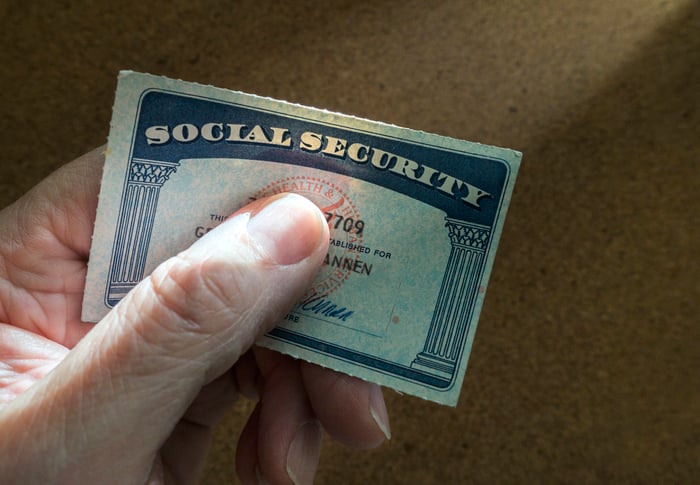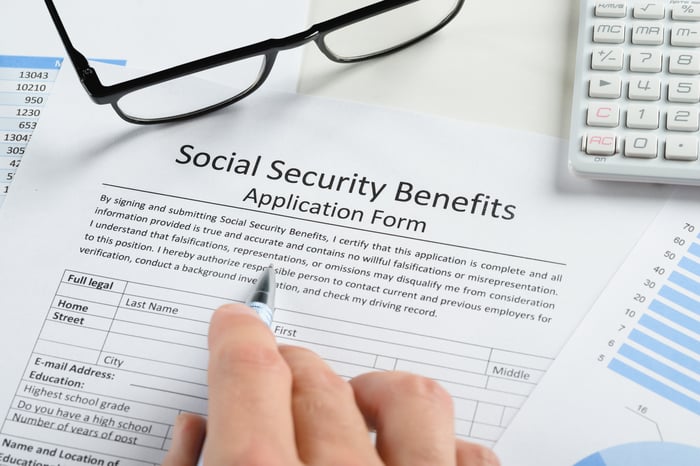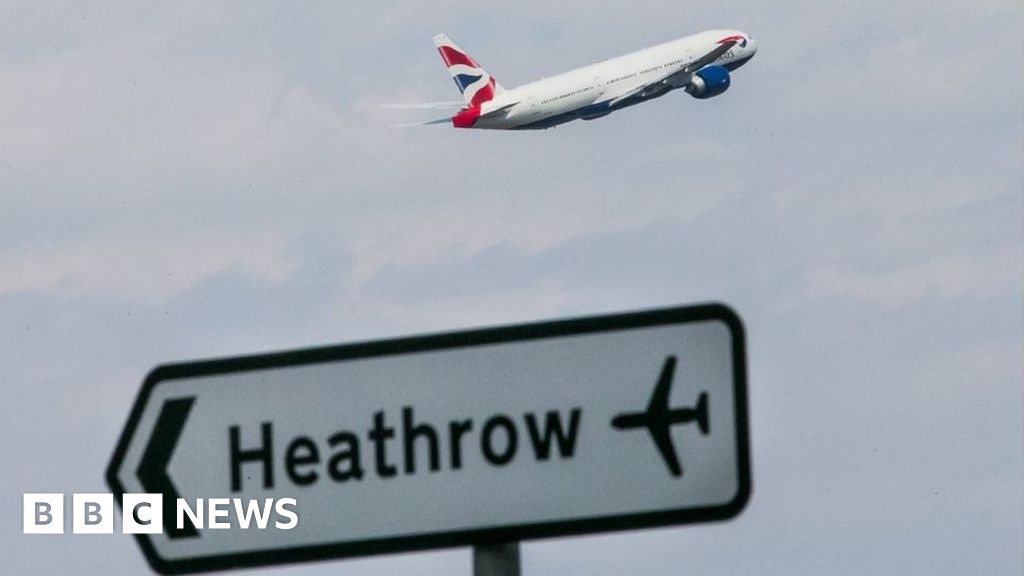Social Security is an entitlement program that provides seniors with income during retirement. But its benefits still have to be earned. This means you receive them only if you've paid into the system or get benefits on a spouse's work record.
Your work history affects (1) whether you will be eligible for Social Security benefits at all and (2) the amount of benefits you receive. It's important to understand how your professional background affects the Social Security income you can expect to receive. This guide will explain everything you need to know about how your work history determines your payout from Social Security.

Image source: Getty Images.
What does your work history have to do with your Social Security?
Your work history determines:
- If you are eligible to receive Social Security benefits. You must earn a certain number of work credits over your lifetime to become eligible to receive retirement income from Social Security.
- The amount of monthly Social Security benefits you're entitled to receive. Social Security considers your highest 35 years of earnings, after adjusting for inflation, to determine your monthly benefits.
Because Social Security benefits are calculated across 35 years, not working this full span may result in reduced benefits, or possibly no benefits at all. But if you work and pay into the Social Security system throughout your career, Social Security retirement benefits are designed to replace around 40% of your preretirement income. The Social Security benefits formula is progressive, though, so lower-earning workers receive a higher percentage of preretirement income than higher earners.
Let's look a little more closely at how work history affects both eligibility for Social Security benefits and the amount you earn.
How does your work history affect eligibility for Social Security benefits?
To become eligible for Social Security retirement income, you're typically required to earn 40 work credits or more. If you were born before 1929, you can qualify for Social Security with a smaller number of work credits.
Prior to 1978, employers reported earnings every three months and you received a quarter of coverage -- which is equivalent to a work credit -- if you earned $50 or more in each three-month period. Now employers report earnings once per year, and you can earn up to four work credits annually. You need a certain amount of "covered earnings" to qualify for each work credit. Covered earnings are earnings on which you pay Social Security taxes, such as income from your salary or from self-employment. Extra income that you don't pay Social Security tax on, such as investment income, doesn't earn you any work credits.
In 2019, you earn one work credit for each $1,360 in covered earnings. This means you must earn at least $5,440 in covered earnings to get the maximum four credits for the year. The amount of money you need to earn to get a work credit changes from year to year. The table below shows the amount you needed to earn for the past several years. You can also check the Social Security Administration website to find out earnings needed for a work credit for each year dating back to 1978.
| Year |
Earnings Required for 1 Work Credit |
Earnings Required for the Maximum 4 Work Credits |
| 2014 |
$1,200 |
$4,800 |
| 2015 |
$1,220 |
$4,880 |
| 2016 |
$1,260 |
$5,040 |
| 2017 |
$1,300 |
$5,200 |
| 2018 |
$1,320 |
$5,280 |
| 2019 |
$1,360 |
$5,440 |
Data source: Social Security Administration.
Remember: You can earn a maximum of four work credits per year, and you need at least 40 work credits to qualify for Social Security retirement benefits. That means you must work at least 10 years to qualify based on your work history. If your earnings are below the minimum needed to earn all four work credits per year, you'd need to work more than 10 years. It is also possible to get survivors benefits, spousal benefits, or Social Security disability benefits with fewer than 40 work credits.
Why does your work history affect your Social Security income?
The Social Security benefit formula is calculated such that you receive benefits equal to a specific percentage of your inflation-adjusted average wage earned over the 35 years your income was the highest.
When calculating your benefits, the Social Security Administration:
- Looks at your entire earnings record over your career and adjusts the wages each year to account for wage growth. Only wages up to a certain maximum wage level are considered in determining your annual income.
- Adds up all the inflation-adjusted wages you earned in the 35 years when you earned the most.
- Divides this number by 420 (the total number of months in a 35-year work period) to calculate your average monthly wage.
The resulting number is your Average Indexed Monthly Wages, or AIME. AIME isn't the amount you are paid in benefits, though -- it's the average earnings that the benefit formula uses to calculate your benefits. The Social Security Administration applies a formula to your AIME to determine your primary insurance amount (PIA). Under the Social Security benefits formula, your primary insurance amount is equal to:
- 90% of your AIME up to a "bend point," which is a set level of income determined in the year you turned 62
- 32% of your AIME between the first bend point and a second bend point
- 15% of AIME above the second bend point
The percentage of AIME in this formula is always the same, but bend points change from year to year. The bend points help keep the Social Security formula somewhat progressive as they ensure lower earners receive a higher percentage of preretirement income in benefits. You can find the bend points for each year on the Social Security Administration's website.
Once your primary insurance amount is determined in the year you turn 62, which is the first year you become eligible for retirement income, it's adjusted upward each subsequent year to account for cost-of-living adjustments (COLAs). COLAs are Social Security raises that occur in years when the cost of living goes up. This gives you the primary insurance amount for the current year.
You receive benefits equal to your primary insurance amount if you retire at an age designated by law as your full retirement age (FRA). FRA is between ages 65 and 67 depending on your birth year. If you claim benefits prior to FRA, your PIA is reduced by a specific amount depending how early your benefits claim is. If you claim benefits after FRA, your PIA is increased by a specific amount depending on how long you delay. This increase stops after age 70, however, which is why many people recommend delaying retirement until 70, if possible.
How does your work history determine how much you get from Social Security?
Based on the way the Social Security benefits formula works, here is how your work history could affect your Social Security retirement income.
- Higher wages over your career means you'll receive a higher monthly benefit. Remember, benefits equal a percentage of average wages earned during your career. If your average wages are higher, benefits are higher as a result.
- A short work history can reduce benefits. Working less than 35 years results in some years of $0 wages being factored in when your average wage is determined. This lowers your average wage and thus reduces the benefits you receive. A work history with exactly 35 years of work experience would mean every year you work is counted in determining your average wage. A longer work history means a few of your lowest-earning years are not averaged in. For example, if you worked 40 years, five full years of your lowest income wouldn't be counted -- increasing your overall average.
So, how can you maximize the Social Security benefits you receive? Make sure to: (1) work at least 35 years so no years of $0 earnings are averaged in, (2) work more than 35 years so your lowest-earning years will be dropped and raise your overall average, and (3) earn as much income as possible throughout your career to boost the average wage calculation.
How can I find out about my Social Security work history?
The Social Security Administration keeps a record of every single year when you pay Social Security taxes. You can access this record by signing into your Social Security account at SSA.gov. You must create an account and verify your identity if you don't have one. If you already have an account, sign in with your username and password. You'll be sent an email at your registered email address that contains a security code for you to enter, and you must agree to the SSA's terms and conditions.
After signing in, you have the option to view your earnings record. This is on the main page of your account and looks like this:

Image source: Social Security Administration.
After you click "View Earnings Record," you'll see a table with three columns.
- The year you worked
- Your taxed Social Security earnings
- Your taxed Medicare earnings
This earnings record is used by the Social Security Administration to determine average wages earned over your career -- and thus to determine the benefits you receive.
Why are my taxed Social Security earnings different from my taxed Medicare earnings?
For most people, taxed Social Security and taxed Medicare earnings listed on your earnings record will be the same. But if you earned a high income in some years, these numbers may be different.
That's because you only pay Social Security taxes up to a certain amount of income each year -- the Social Security wage base limit. The wage base limit can change each year. In 2018, it was $128,400; in 2019, $132,900. Above this limit, earnings are not taxed for Social Security benefits, but they are taxed for Medicare. So, for any year that your total wages exceeded the wage base limit, the columns for Social Security and Medicare will differ.
As an example, let's say you earned $150,000 in 2018. Your "taxed Medicare earnings" column will reflect this full amount of $150,00; however, the "taxed Social Security earnings" column will report $128,400 as this was the Social Security wage base limit for 2018.
What if Social Security doesn't have an accurate record of my work history?
Sometimes Social Security makes mistakes when tracking your work history. Common reasons for this include:
- Your employer used the wrong Social Security number when reporting your wages
- Your employer made a mistake when reporting your earnings
- You changed your name and didn't report the change to the Social Security Administration
- You performed work using a Social Security number that wasn't yours
If your earnings record is wrong, you need to correct it so you can get full credit for the work you did when your Social Security benefits are calculated.
To correct it, find some proof of the money you earned but aren't getting credit for, such as old pay stubs, W-2 forms, or tax forms. Then contact the Social Security Administration right away at 800-772-1213. The office is open Monday to Friday from 7 a.m. to 7 p.m. local time. A representative will explain the steps to take to get your earnings record updated so benefits can be calculated accurately.
How can I estimate my Social Security benefits based on my work history?
Estimating your benefits based on your work history is more complicated than it seems. That's because you need to adjust all your earnings for inflation.
The Social Security Administration uses the Average Wage Index (AWI) to adjust for inflation. In particular, it uses the AWI in effect two years before you first become eligible for Social Security benefits. You become eligible for retirement benefits at 62, so the AWI from the year you turn 60 is used to determine how much your wages are adjusted upward to account for wage growth.
If you turn 62 in 2019, the AWI from 2017 is used to adjust each year's wages. The wages are adjusted based on an "indexing factor," which is calculated by dividing the AWI in the year you turned 62 by the AWI in the year you earned the wages being adjusted. You then multiply that year's earnings by the indexing factor. This can be confusing, so here's an example:
- If you turn 62 in 2019, you use the AWI from 2017, when you turned 60. That AWI is $50,321.89.
- If you want to adjust your wages from 2016, figure out the indexing factor for 2016 by dividing $50,321.89 (the AWI used for all your adjustments) by $48,642.15 (the 2016 AWI). Your indexing factor is 1.035.
- Multiply 1.035 times the wages earned in 2016, since that's the year you're adjusting the wages for. If you earned $50,000 in 2016, multiply $50,000 by the indexing factor of 1.035 to find out your index-adjusted annual wage is $51,750.
Every single year you worked will need to be determined by multiplying against this indexing factor. That's a lot of work -- fortunately, the Social Security Administration has a form on its website where you can input the year you become eligible for Social Security benefits and get the indexing factor for each year dating back to the year after your birth. To use this form, do the following:
- For each year on your earnings record, multiply your taxable Social Security wages by the indexing factor for that year to find out your average indexed wage.
- Add up the average indexed wages for the 35 years you earned the most and divide by 420 months to get your AIME.
- Apply the Social Security benefits formula to your AIME so you receive 90% of AIME up to the first bend point, 32% between the first and second bend points, and 15% of the amount above the third bend point. Remember, the bend points used are those from the year you turn 62, and they can be found on the Social Security website.
Is there an example of how your work history determines your Social Security benefit?
Here's an example of how your work history could determine your Social Security benefit.
The table below shows the earnings record of someone who turned 62 in 2019. Let's call her Kelly. It shows the indexing factors that apply to each year of wages, as well as the index-adjusted wage for each year. For purposes of this example, let's assume Kelly took time off in the middle of her career and worked only 33 years -- not a full 35 years.
|
Year
|
Earnings
|
Indexing Factor
|
Inflation-Adjusted Wage
|
|
1981
|
$13,000.00
|
3.6536357
|
$47,497.26
|
|
1982
|
$15,000.00
|
3.4629903
|
$51,944.85
|
|
1983
|
$15,400.00
|
3.3021260
|
$50,852.74
|
|
1984
|
$16,000.00
|
3.1187897
|
$49,900.64
|
|
1985
|
$17,250.00
|
2.9913426
|
$51,600.66
|
|
1986
|
$18,000.00
|
2.9051156
|
$52,292.08
|
|
1987
|
$18,000.00
|
2.7309507
|
$49,157.11
|
|
1993
|
$26,000.00
|
2.1753602
|
$56,559.37
|
|
1994
|
$27,100.00
|
2.1185015
|
$57,411.39
|
|
1995
|
$28,225.00
|
2.0368567
|
$57,490.28
|
|
1996
|
$28,225.00
|
1.9418879
|
$54,809.79
|
|
1997
|
$29,000.00
|
1.8348243
|
$53,209.90
|
|
1998
|
$29,500.00
|
1.7435682
|
$51,435.26
|
|
1999
|
$30,000.00
|
1.6515312
|
$49,545.94
|
|
2000
|
$30,000.00
|
1.5649875
|
$46,949.63
|
|
2001
|
$32,000.00
|
1.5285223
|
$48,912.71
|
|
2002
|
$34,000.00
|
1.5133452
|
$51,453.74
|
|
2003
|
$35,300.00
|
1.4772336
|
$52,146.35
|
|
2004
|
$36,500.00
|
1.4116111
|
$51,523.81
|
|
2005
|
$36,500.00
|
1.3617831
|
$49,705.08
|
|
2006
|
$37,400.00
|
1.3019419
|
$48,692.63
|
|
2007
|
$38,000.00
|
1.2454224
|
$47,326.05
|
|
2008
|
$40,000.00
|
1.2174169
|
$48,696.68
|
|
2009
|
$42,000.00
|
1.2360575
|
$51,914.42
|
|
2010
|
$42,450.00
|
1.2075178
|
$51,259.13
|
|
2011
|
$43,000.00
|
1.1708317
|
$50,345.76
|
|
2012
|
$44,500.00
|
1.1353789
|
$50,524.36
|
|
2013
|
$44,500.00
|
1.1210504
|
$49,886.74
|
|
2014
|
$46,000.00
|
1.0826214
|
$49,800.58
|
|
2015
|
$47,500.00
|
1.0462229
|
$49,695.59
|
|
2016
|
$48,200.00
|
1.0345326
|
$49,864.47
|
|
2017
|
$49,000.00
|
1.0000000
|
$49,000.00
|
|
2018
|
$50,000.00
|
1.0000000
|
$50,000.00
|
Data source: Social Security Administration. Calculations by author.
If you add up all the inflation-adjusted wages from this table, you get $1,681,404.99. Divide this by 420 months (35 years of work). Remember, even though Kelly only worked for 33 years, 35 years of work history are still considered, so two years of $0 wages are factored in. Based on this math, the AIME for Kelly is $4,003.35.
Now apply the AIME formula for 2019 -- the year she turned 62. The AIME bend points in effect for that year are $926 and $5,583. So, the formula looks like this:
- 90% of the first $926 = $833.40
- 32% of the $4,003.35-$926 = $984.75. Since Kelly only earned $4,003.35 -- which is below the second bend point of $5,583 -- we don't have to give her credit for 15% of income above that second bend point. If Kelly had earned more, then we'd also have to add in 15% of income above that $5,583 threshold.
Kelly's primary insurance amount is $833.40 + $984.75 = $1,818.15. If she retired after age 62, the primary insurance amount would be adjusted upward based on Social Security cost-of-living adjustments made in each year after he turned 62.
There is one final adjustment to make: The PIA is the amount that Kelly gets only if she retires at full retirement age. Since she was born in 1957, her full retirement age would be 66 and 6 months. If she is 66 and 6 months of age when she chooses to claim benefits, then she would receive the full $1,818.15. However, if she claimed benefits earlier, her PIA would be reduced; if she retires later, it would be increased. You can learn more about how to make this final adjustment and whether it increases or decreases your PIA here.
How to maximize your Social Security benefits through work history
Now that you understand all there is to know about the effect of work history on your eventual Social Security benefits, let's summarize the main ways you can maximize these benefits:
- Qualify with work credits: You must work long enough to earn the number of work credits to qualify.
- Work at least 35 years: Benefits are based on inflation-adjusted wages in the 35 years when you earned the most. If you work fewer than 35 years, your benefit will be reduced because every year of $0 income will bring down your average wage. Bonus: If you work more than 35 years, your average wage will be increased by dropping a few of your lowest-earning years.
- Earn more throughout your career: OK, you're probably already trying for this one anyway, but it's worth noting. The more money you earn throughout your career, the more money you will receive in retirement -- but you only get credit for earnings up to the maximum taxable income for Social Security each year.
Knowing this will help you to decide when to quit working, and it should hopefully give you a better grasp of how your working life determines the Social Security income available in your retirement years.
Let's block ads! (Why?)
https://www.fool.com/retirement/2019/08/03/how-your-work-history-determines-how-much-you-get.aspx
2019-08-03 12:54:00Z
CAIiEE7IiFFJj0WwiMFmrrES4iwqFQgEKgwIACoFCAowgHkwoBEw2vCeBg








